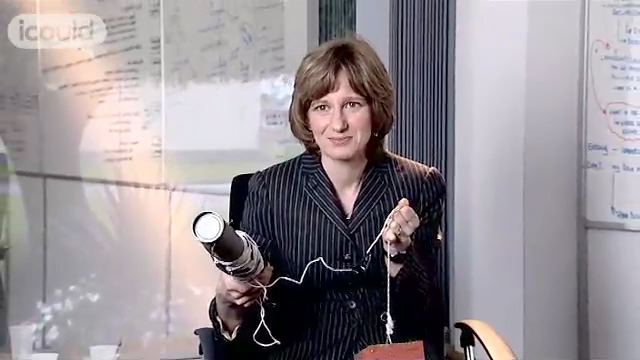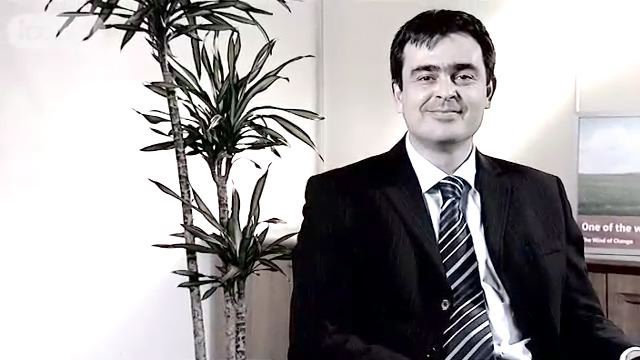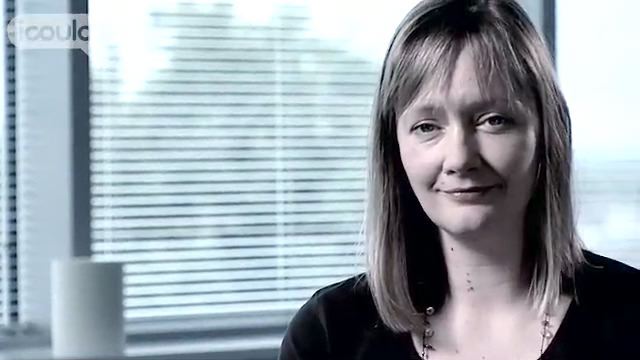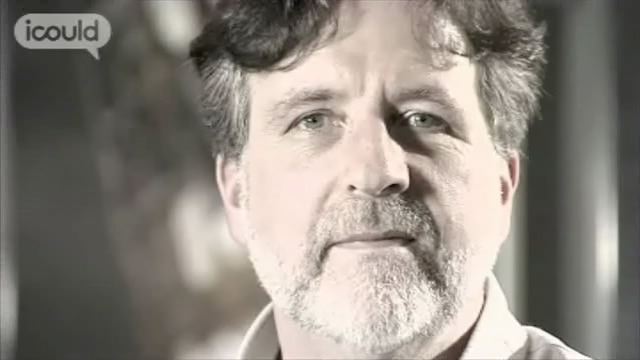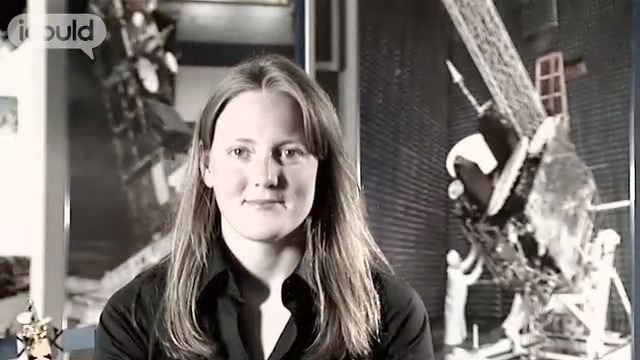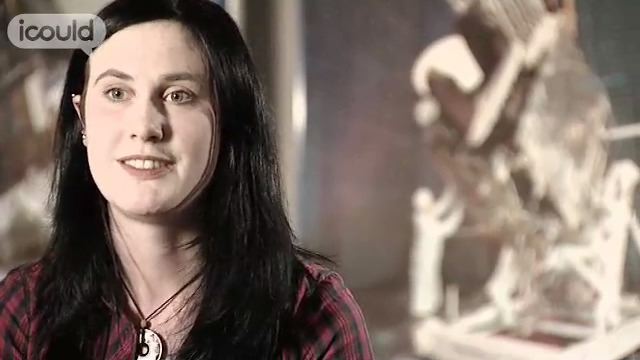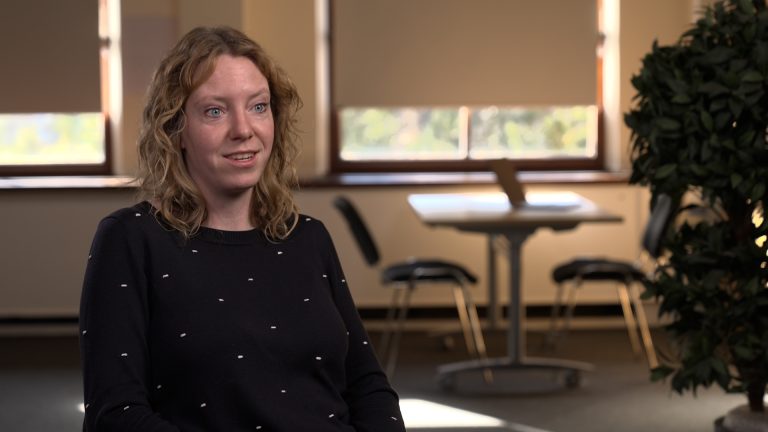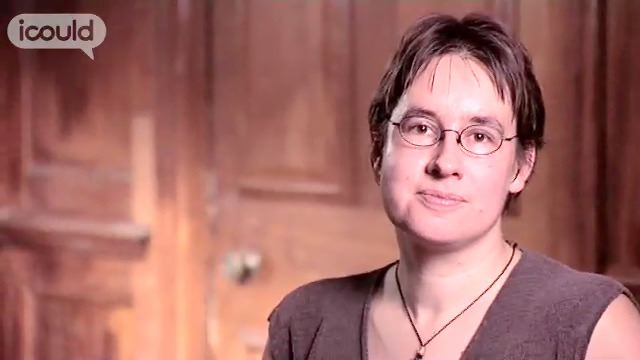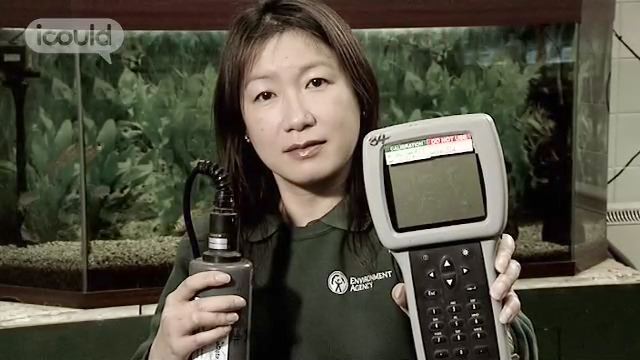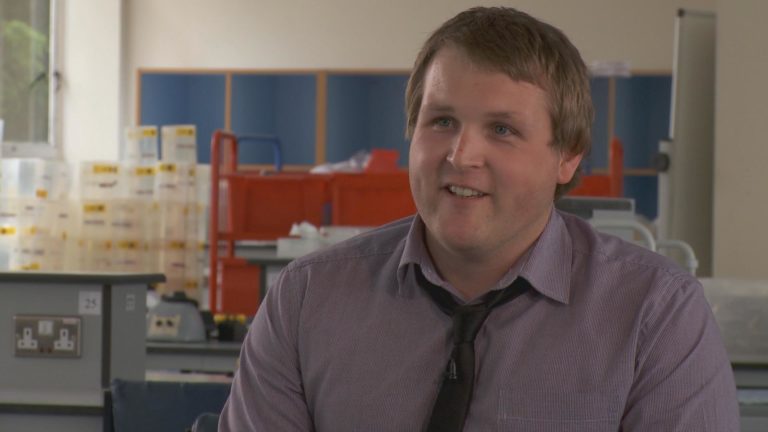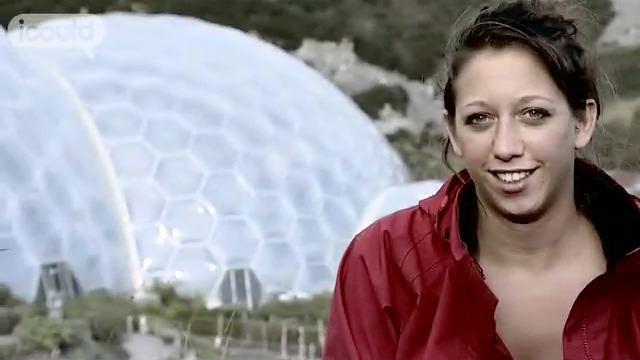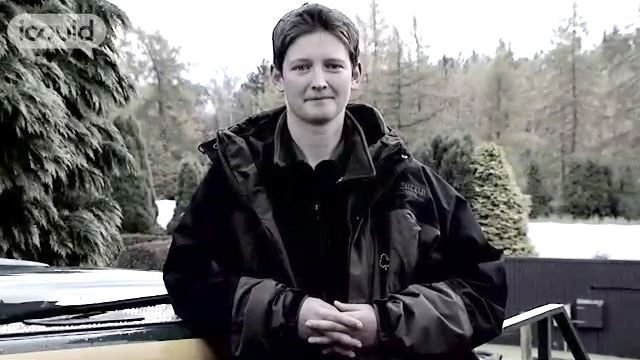Environmental Modeller
E.ON
Jenna L
00:00:03 My name is Jenna L, and I’m an Environmental Modeller. What that really means is that I look at the effects of electricity generation on the environment. And I do that mainly by using software programmes. So I spend most of my day sitting in front of a computer. One of the things that I enjoy is that we work on a lot of different projects. The advantage of that is if you’re on a project that you don’t like, it doesn’t – doesn’t last forever. I suppose the disadvantage is if you’re on something that you really like, that doesn’t last forever either. But there’s a lot of variety.
00:00:33 This is clearly a brick on a piece of string. I don’t want you to think that this is what I do every day in my job, because it’s not. When I’m doing a preliminary assessment I might need to know how deep a river is, and one way you can do that is to dangle a brick on a piece of string over a bridge, and count the number of markers that – that went underwater until the brick hits the bottom, and then that’s an estimate of the depth of the river.
00:00:57 The thing that’s had the biggest impact on my life is having a child, because I now work three days a week not five days a week. I think being a mother changes a lot of things, because your child is the most important thing and you have to be there – I’m the main carer, so I have to be there for my child. I prefer to stay in the office now more. If there are options of going out on trips, I’m probably less likely to want to do that now, if it means they might get back late. So yeah definitely some things have changed, and I’m now three days a week not five days a week, and that has some influence on what projects I can work on.
00:01:30 Well I was at school quite a long time ago, so I did O levels, and then I did A levels. I did Maths, Physics and Chemistry, so I was sort of heavily biased towards the Sciences and Maths. I knew I wanted to go to University to do a scientific subject and I chose – I chose Physics. And then by the time I was coming to the end of University, I wanted to go out and get a job at that point. Partly because I wanted to earn some money. I didn’t really have a plan of what I wanted to do. I just went to the University Careers Service, and that’s how I ended up working for E-on, or whatever the company was called, sort of 18 years ago.
00:02:08 I travelled sort of after University before starting work, as many people do. I had a round the world ticket, but I spent most of my time in Australia. It was just an opportunity to take a long period of time off. I mean, you can go to Australia for four weeks if you use up all your annual leave in one go, but it’s not the same as going there for six months or a year. I ended up with a job offer out there, so I did have the option of staying out there, but I actually chose to come back. And one of the reasons is that you are very far away from your family.
00:02:41 It was about ten years ago I spent about four months working in Brazil. We were part of the electricity industry in Brazil was being privatised, and we were looking at buying into part of it. I’d probably say my first week in Brazil was probably one of the worst weeks of my life actually, but by the end of it I really enjoyed the experience. I think it taught me the difference between quality of life and standard of living. Because you’re living in a very nice hotel, and you’re eating very nice food, you’re eating in restaurants every evening, but your quality of life was actually quite low because you’re actually spending most of your time working, and you’re away from all your friends, and the things that you normally have around you.
00:03:22 I don’t feel that my parents pushed me in any way at all really, I think they just let me – they let me do my own thing. With hindsight they were probably quite lucky in some ways, because I worked very hard at school and I was quite dedicated, so they never had to tell me to do my homework.
00:03:38 I’m quite happy with the job that I’m doing, so I’m not intending to apply for any other jobs or move elsewhere. But I do work for a big company, changes and reorganisations do happen, so I’m not naïve enough to think that I’ll be sitting at the same desk doing exactly the same job in ten years’ time, because it’s probably not that likely.
00:03:45 ENDS
Armed with a physics degree and gap year experience in Australia, Jenna L joined E.ON and is pursuing a varied and rewarding career. Variety in her work, opportunities to travel abroad e.g. Brazil, and later, when she started her family, the flexibility to go part time, have ensured Jenna’s loyalty to the company. Her current projects involve looking at the effects of electricity generation on the environment.
More information about Biochemists and biomedical scientists
The UK average salary is £29,813
There are 37.5 hours in the average working week
The UK workforce is 47% female and 53% male
Future employment
- Studies the chemical form, structure, composition and function of living organisms
- Identifies and studies the chemical substances, including microbial infections, involved in physiological processes and the progress of disease
- Performs tests to study physiological and pathological characteristics within cells and other organisms
- Researches the effects of internal and external environmental factors on the life processes and other functions of living organisms
- Performs tests to help clinicians diagnose and treat various conditions, evaluates existing treatments and researches new ways to treat diseases
- Researches, develops and quality checks new products in the pharmaceuticals, food production and agricultural Industries
